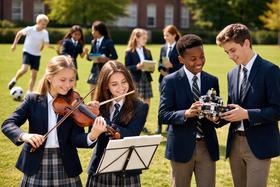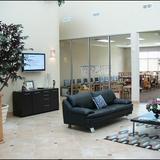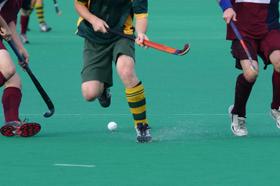Applebee Montessori Academy is a 5 star rated preschool by the parents.
Applebee Montessori Academy offers an academically robust Montessori curriculum delivered by experienced teachers in a safe and nurturing environment.
We are open from 6:30 am to 6:30 pm Monday through Friday. Our preschool accepts children from 6 weeks to Pre-K.
Quick Facts (2026)
- School Type: Early Childhood / Day Care
- Grades: Nursery/Preschool-Kindergarten
- Enrollment: 140 students
- Yearly Tuition: $12,000
- Average class size: 18 students
- Application Deadline: None / Rolling
- Source: National Center for Education Statistics (NCES)
School Overview
School Type
Grades Offered
Grades Nursery/Preschool-Kindergarten
School Calendar
Student Body
Total Students
140 students
Student Body Type
Co-ed
Academics and Faculty
Total Classroom Teachers
8 teachers
Student-Teacher Ratio
18:1
National avg.: 11:1
Average Class Size
18 students
Tuition and Acceptance Rate
Admission Deadline
None / Rolling
Yearly Tuition Cost
$12,000
Admissions Director
Becca Caccavale
School Notes
- The Applebee Montessori Curriculum adheres to the Montessori Method of education which is based on Doctor Maria Montessori’s (1870-1952) scientific observations about how children learn as they progress from birth to adulthood. Montessori’s research into child development, and subsequent findings about how to create the optimal learning environment, came to form the foundations of the ‘Montessori Method’. Essential to the Montessori Method, is the Montessori Curriculum, which is a child-centered learning framework that incorporates holistic learning outcomes tailored to each individual child’s developmental needs and interests.
- The Montessori Curriculum covers five key learning areas, including: Practical Life, Sensorial, Mathematics, Language and CulturePractical LifePractical Life activities help children learn how to care for themselves and their environment. These activities help the child to become more independent, leading to greater self-confidence, and the ability to face new challenges. Practical Life exercises include lessons in grace and courtesy, care for self, and care for the environment. The purpose of these activities is to enhance co-ordination, concentration, independence, and indirectly prepare children for writing and reading. Activities often include cleaning, food preparation, polishing and watering plants.SensorialSensorial materials were designed by Doctor Maria Montessori to help children express and classify their sensory experiences. The purpose of sensorial activities is to aid in the development of the intellectual senses of the child, which develops the ability to observe and compare with precision. There are sensorial materials that focus on visual perception, tactile impressions, auditory sense, and olfactory and taste perceptions. Activities often include matching and grading materials that isolate the sense of sight, sound, touch, taste and smell.MathematicsMathematical concepts are introduced to the child using concrete sensorial materials. Initial explorations with sensorial materials encourage children to understand basic math concepts such as learning number recognition, counting and sequencing of numbers. Sensorial work prepares the child for a more formal introduction to mathematics, and the introduction of abstract mathematical concepts such as the decimal system and mathematical operations
- .Language
- Language materials are designed to enhance vocabulary and explore both written and spoken language. Through language-based activities, such as the sandpaper letters and the moveable alphabet, children learn phonetic sounds and how to compose words phonetically. They progress using concrete materials to compose their own written work, read the work of others, and learn to communicate their unique thoughts and feelings.CultureCultural activities lead the child to experience music, stories, artwork and items from the child’s community, society and cultural background. The areas of geography, science, zoology and botany are all included in this area. A range of globes, puzzle maps and folders containing pictures from different countries all help to give the child an insight into different cultures. The culture area encourages children to develop their capacity for creation, and develop fine motor skills. Whilst learning to freely express themselves. Through cultural activities, children develop an awareness and appreciation of the world around them.
Source: National Center for Education Statistics (NCES)
Frequently Asked Questions
How much does Applebee Montessori Academy cost?
Applebee Montessori Academy's tuition is approximately $12,000 for private students.
When is the application deadline for Applebee Montessori Academy?
The application deadline for Applebee Montessori Academy is rolling (applications are reviewed as they are received year-round).
School Reviews
Endorse Applebee Montessori Academy. Endorsements should be a few sentences in length. Please include any comments on:
- Quality of academic programs, teachers, and facilities
- Availability of music, art, sports and other extracurricular activities
- Academic or athletic awards
Recent Articles

Guides to Private Schools in 2026
Updated 2026 guide to private schools, covering admissions trends, tuition, financial aid, school types, and expert tips for families.

Why Private School in 2026: Advantages, Trends, and What Families Need to Know
Explore why private school remains a compelling choice in 2026, with updated trends, outcomes, and real‑world benefits for families today.

Costs of Private School in 2026
Discover the hidden costs of private school in 2026, including fees, uniforms, and extras parents must budget for beyond tuition.







